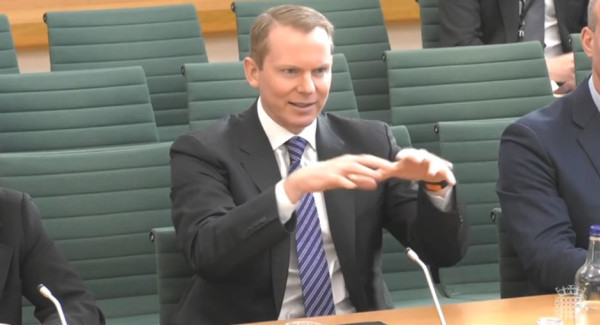

Lloyds Banking Group's chief executive Charlie Nunn has said some of the bank's customers are struggling to stay in the buy-to-let sector due to pricier products and the bills attached to retrofitting properties.
In a Treasury committee meeting today (February 7), Nunn said the sector is challenged on two fronts, with increased borrowing costs and net zero commitments.
"Those two things together are making the business case for some of our customers really difficult to stay in the buy-to-let space," said Nunn.
"As we look at higher interest payments, we're very focused on those customers who are going to have an income stretch that isn't sustainable."
Nunn said the bank is looking at ways to make these mortgage products more sustainable for those customers who are facing an income stretch, such as buy-to-let investors.
Brokers have previously told FTAdviser that buy-to-let mortgage holders - particularly in areas with high house values like the south east - are “a time bomb”, with five-year terms set to renew from next year.
Those investors that maxed their mortgage payments nearer to their rental incomes are set to feel the biggest pinch.
"They will find themselves underwater on the new payments and with house prices falling they are losing money in both directions," founder of Edinburgh Mortgage, Mark Dyason, told FTAdviser.
Lenders have steadily been increasing the arrangement fees charged on buy-to-let mortgages.
Some brokers have suggested it is in an attempt to maintain profit levels and allow landlords to borrow more.
Until recently, a typical flat fee of around £999 - £1,500 would be charged on a buy-to-let mortgage, but as a result of rising interest rates a lot of lenders have moved to a percentage based model instead.
"Where a £200,000 mortgage may have come with a £995 fee 12 months ago, that could very easily now be up to £3,000 or more in some circumstances," broker and owner of Riverside Mortgages, Lewis Shaw explained.
As more small-time buy-to-let landlords leave the sector, the number of homes available to rent in the UK has fallen. Only half the number of properties were available to rent in March 2022 compared to the same period in 2019.
Nunn said Lloyds has invested billions into affordable housing, some £12bn or more, but that this only goes some way to solving the problems facing the private rental market.
"The banks do have a role, but that doesn’t take away from the really significant challenges facing this sector," Nunn concluded.
Cost of going green
Property accounts for around a quarter of EPA emissions. As a result, the government has set targets for the housing sector in an effort to reach net zero as a country by 2050.
The government’s green homes target requires landlords to get their properties up to an energy performance rating (EPC) of C by the end of 2025 for all new tenancies, and by the end of 2028 for all existing tenancies.
Though the target is caveated with "where practical, cost-effective and affordable".
Since setting this target, the government has said it is considering whether to introduce “mandatory disclosure requirements” for lenders to share the EPC ratings of the properties on their mortgage books.
Experts have warned buy-to-let investors could become mortgage prisoners if they do not make sure their property portfolios are eco-friendly.
Data released by the Office of National Statistics in 2021 suggested the government’s green homes initiative could cost landlords a collective £21.5bn.
This works out to £7,646 per privately rented property. With government finance for the home improvements now withdrawn, many landlords have found themselves ‘stuck’ with no spare cash to meet the EPC target.
The National Residential Landlords Association has gone as far as to label the government’s ambitions to improve the energy efficiency of the rental housing stock "a pipe dream".
ruby.hinchliffe@ft.com



